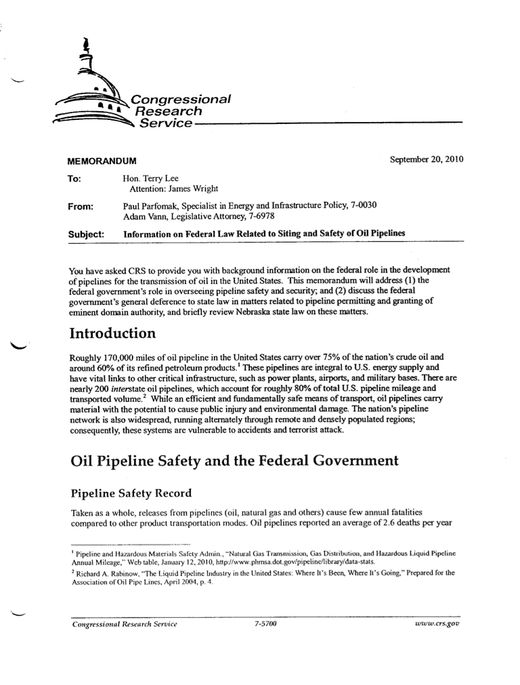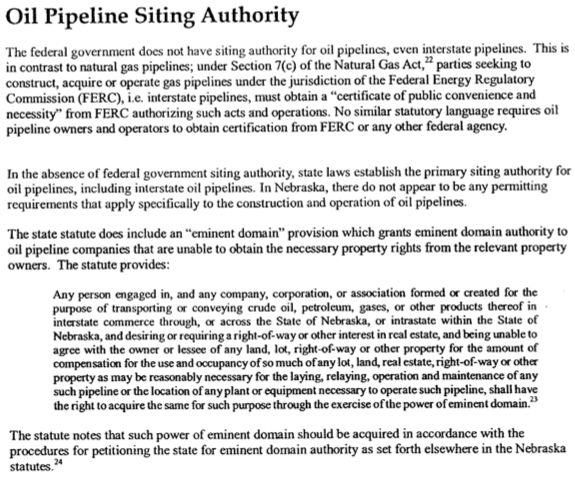On Tuesday we wrote an article about the TransCanada pipeline issue that has been getting a lot of reads and generated a number of e-mails and phone calls. We even drew the attention of one of the people mentioned, Bold Nebraska’s Jane Kleeb, who stated that she wants to sit down and have coffee.
Tuesday’s article presented very many questions and listed many concerns. We said we don’t like what’s going on with the TransCanada pipeline issue and that we did not pretend to have good answers. Wednesday’s developments reinforced what seems to be true the longer I observe and research events within politics and government, which can be summarized by a phrase likely familiar to many:
Where there is smoke, there is fire.
One could call our first article on TransCanada an effort to explain a lot of smoke. Wednesday’s news reveals the fire. A very stunning article was published in the Lincoln Journal Star Wednesday. I say it was stunning for two reasons; first, it was an all-too-uncommon instance of genuine journalism.
LJS‘ article, “State Department official: States govern pipeline routes” reveals in its title alone that a number of things in the whole pipleline debate simply don’t square up. The title, at the very least, should raise the eyebrows of Nebraskans who have followed the debate over the pipeline issue even in a cursory way, because their governor and others have been repeating the talking point that the Governor and the legislature have no power to do anything regarding the pipeline and appeals should be made to federal officials.
Another stunner about the LJS article…Ben Nelson is right about something and I agree with him. Thankfully, Linda was on hand to save me by noting…
“Even a blind sow picks up an acorn once in a while.”
The acorn in this case is the truth.
The truth in the article:
But Democratic Sen. Ben Nelson has argued that the state must decide on the pipeline’s location and that Gov. Dave Heineman is responsible for proposing a suitable alternative route.
Tuesday we provided a link to a snapped image from a Congressional Research Service (CRS) report. Since the site to which we linked provided an image of a portion of the overall document, and not the entire document, we made note and asked some questions. In other words, we didn’t have enough to go on for the full import of the CRS report to be clear. Wednesday’s LJS article, which included quotes from a State Department spokesman and Governor Heineman’s communication director, confirms that finding and taking a closer look at the CRS document is very much required.
Why?
In September of last year, 2010, Nebraska Congressman Lee Terry requested a report from the CRS about federal authority, Nebraska, and pipelines. The CRS dated the requested report, addressed to Rep. Terry, September 20, 2010. It’s important to note an important LJS inaccuracy; the CRS report was not released in March of 2011, as the article stated, which is made obvious by an examination of the document. Here is an image of the cover page:
I have included an image of the most relevant portion of the document – it pertains to the issue of who has the authority, federal or state government, in choosing the siting and route for pipelines:
What can one say at this point?
I know I was already very troubled about Rep. Terry’s involvement in this whole subject considering the location of his congressional district. My concerns multiplied after reading a press release on Tuesday evening from the campaign challenging Terry in the 2012 primary. Challenger Brett Lindstrom’s press release details campaign contributions Rep. Terry has received from many groups which are advocating for the pipeline and strenuously calls into question Terry’s introduction of the expediting legislation. (Important note: Since this is the second time I am linking to a Brett Lindstrom press release , I want to be very clear that does not constitute an endorsement either of the candidate nor the entire contents of any article or press release. It is important that Nebraskans know there is a challenging candidate in any primary election. This seems especially important considering the policy changes of the NEGOP regarding incumbents.)
Rep. Terry’s involvement in the pipeline issue is questionable, despite the fact that he serves on the House Committee on Energy & Commerce. It is the level of interest, number of actions, and additional facts, some previously noted, and those raised by the Lindstrom campaign. It is difficult, too, to dismiss the questions that arise about supporting entities and groups who are also energetically advocating for the pipeline – as is, where is.
In our first TransCanada pipeline article, we linked to a Platte Institute “news” item, written by an Omaha union business manager. Due to the Platte Institute website format, it was murky, at best to determine whether the article was from an outside source, or purposely published by Platte. Regardless, the whole appearance of that article was confusing. The confusion has now been cleared away, directly, by Platte who noted in their Wednesday release of “Truth About the TransCanada Pipeline” that, “Last week, the Platte Institute published a guest article by Ron Kaminski of Laborers Local 1140…”.
Our first article on this subject did not connect any dots. It has become increasingly difficult to avoid pointing out some connecting dots here and the natural set of questions which follow. Our Ruling Class series of articles, still in progress, will much more fully cover some of the dot connecting. We particularly noted the importance of doing so in our “Political Influence” piece, which was only a start. However much we’d like to proceed with that series in a more deliberate fashion, the question of certain influences are impossible to avoid pointing out in light of this week’s developments. Platte Institute is very clearly and loudly advocating for the pipeline, as is Rep. Terry. The Lindstrom campaign definitely followed a lot of money in their press release. There was one trail they did not follow, however. Are these two facts related: Mr. Ricketts is the President of the Platte Institute and a top contributor to Mr. Terry? Perhaps it is just a coincidence…
A number of things about the advocacy of Terry and Platte Institute don’t make sense in a number of respects. Perhaps most perplexing is Platte’s visibility in advocating for “significant, comprehensive, and meaningful reform” regarding the CIR issue and then very soon getting in direct partnership with a union organization to advocate on another issue. We’ve pointed out, repeatedly, how unions in Nebraska, along with a few other groups, have a provable history of blocking spending cuts and financing very particular political campaigns that are ultimately detrimental to the interests of taxpayers. People claiming to be conservatives who apply no discretion to their partnerships on “issues” should be questioned strenuously about their overall lack of judgement.
It is time to separate the wheat from the chaff.
Also advocating for the pipeline is AFP-NE and their advocacy sounds strikingly similar to that of Platte and Terry. AFP-NE seems to have gone to no small amount of trouble; I have been made aware of multiple reports that AFP-NE was busing people into Lincoln and, apparently, paying for hotel rooms for any bus riders who needed a place to stay. While I can’t immediately find anything online to absolutely confirm AFP-NE’s busing and lodging offer, the same busing effort was conducted in Wichita, Kansas.
In our prior TransCanada article, we made mention of how ultimately self-destructive it can be for conservatives to consistently allow debates to be framed by the left, particularly in the case of the pipeline issue, adopting arguments propounded by the environmentalists is playing into their hands and, therefore, is ultimately self-defeating. What about adopting the tactics of the left? Should limited government conservatives who believe in state sovereignty and local control participate in efforts to bus outsiders to hearings convened for the purpose of obtaining local input? I think not. AFP is cutting the legs out from under the argument about bottom-up governing by conducting such efforts.
Finally, for now, we must contrast the information contained in the CRS report to the following video from Fox News Channel from a Wednesday broadcast of America Live. District 29 State Senator Tony Fulton appeared to “debate” TransCanada’s President about the pipeline: (E-mail subscribers, click HERE to view the video.)
I have a lot of questions about this interview. I’ll only list two of them here…
1) Senator Fulton represents a legislative district in Lincoln…why is he talking about the pipeline?
2) Does Senator Fulton’s “understanding” seem lacking considering the facts noted above?
Sorry, I must make it three. Although not directly related, it is really getting under my skin as a citizen, curious observer, and activist who spent a lot of hours on the issue…
3) Isn’t it a bit curious that Senator Fulton made this appearance on national television to publicize and debate the pipeline issue but, throughout the entirety of the last legislative session, he made no effort to generate national attention regarding his own prioritized bill — which was on the subject of collective bargaining — at a time when Fox News was covering that issue hour after hour? (formerly/http://video.foxnews.com/v/3936835/fight-for-state-sovereignty/, as have a number of other Nebraska officials.)
To summarize:
- A representative from the state of Nebraska requested information about under whose authority pipeline routing falls
- The request was made a year ago
- That Nebraska representative either failed to inform the state’s Governor and Legislature, or they were aware of the information
- That representative has a lot of campaign contributions from a lot of groups that are lobbying for the pipeline
- A top contributor to that representative’s campaigns runs an organization which is heavily advocating for the pipeline, as is, where is, in conjunction with a labor union
- The contributor’s organization is advocating for the pipeline, putting out a “Fact vs Myth” report without any supporting documentation and totally ignoring the highly questionable process that has taken place and an apparent effort to pretend that there are troubling questions about appropriate action from Nebraska’s officials
- A group in Nebraska claiming to be a “grassroots organization” is engaging in busing people to a public hearing and thereby engaging in leftist tactics and interfering with locals’ efforts to give their input
- The pipeline has been a known issue for two years
- For a year, at least one elected official from Nebraska has been aware of the need for action by Nebraska’s state government
- Somehow the facts about serious holes in Nebraska state law failed to become known to anyone in the public for at least six months
- Nebraska has no state statutes pertaining to pipeline authority
- Nebraska has laws allowing private companies to invoke eminent domain
- Nebraska’s governor refuses to call a special session to correct serious deficiencies
- Nebraska Republican senators are either silent or have a perplexing lack of understanding about existing law or needed legislation
At the top of this article there is a picture depicting the famous story of “George Washington and the Cherry Tree”. How is this related to this article? The story of the cherry tree and “I cannot tell lie”, historians have concluded, probably never really happened. So be it. But, if that is so, the relevant question is: How did George Washington become an iconic, almost mythological figure in the American psyche? The cherry tree story was emblematic.
George Washington was chosen unanimously at least three times to lead the America people; first as President of the Constitutional Convention in 1787 and both times by the Electoral College when he — reluctantly, I might add — ran for President. George Washington was the only American President to have been so universally admired and respected as to have earned unanimous support. America’s first president has become a mythological figure, almost a god.
But it’s actually wrong to elevate George Washington to god status. He was just a man, as were all the men who founded this country and became its first leaders. Washington’s conduct was not unattainable. And he was not perfect, he did make mistakes as all flawed human beings do, but he worked to be virtuous. One need only read his Rules of Civility and Decent Behavior to see evidence of his conscious effort to cultivate and instill in himself the habits of good character. His peers deeply respected him as a result and held him as a standard bearer to be emulated.
Would the honest, respectable, and virtue-seeking Washington be admired by today’s politicians?
If we look at Congressional approval ratings over a long period, as just one mark of the American peoples’ sentiments, we find confidence in politicians at a shamefully low level. Why? People do not trust them. The American people don’t believe their elected officials, generally, are honest.
Today’s politicians seem to spend most of their time trying to figure out how to craft verbiage designed to obfuscate so they can stay in office.
But, if we cannot expect basic honesty from those we elect to represent us in office, what else is there?
We must cast aside the idea “it’s everyone else’s politician that is the problem”. Nebraska, we have a problem, and it’s a serious one.
(E-mail subscribers, this article concludes with a video; click HERE to view it.)



You must be logged in to post a comment.